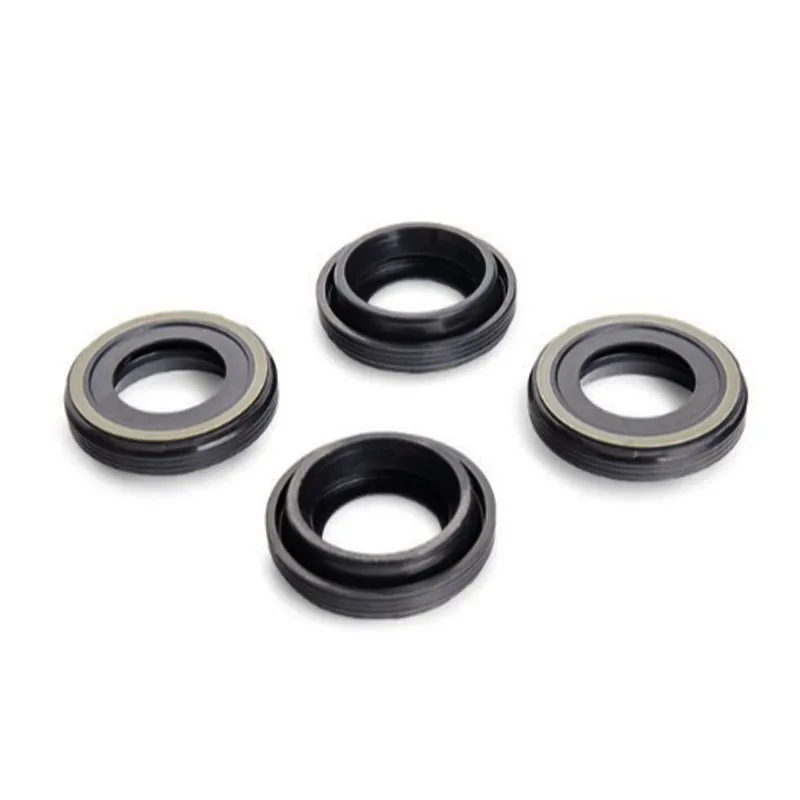Understanding Torque Converter Seals and Their Importance in Automotive Performance
Understanding Torque Converter Seals The Unsung Heroes of Automatic Transmissions
When we talk about automatic transmissions, one of the critical components that often flies under the radar is the torque converter and its seal. The torque converter is a device that allows for smoother acceleration and efficient power transfer from the engine to the transmission. Amid the complexities of this system, the torque converter seal plays an indispensable role in ensuring that everything operates seamlessly. Let's delve into its function, significance, and maintenance considerations.
What is a Torque Converter Seal?
In simple terms, a torque converter seal is a part designed to maintain a proper seal between the torque converter and the transmission housing. It is responsible for preventing the loss of transmission fluid, which is vital for the operation of the torque converter. A proper seal helps maintain hydraulic pressure, enabling the effective transfer of power between the engine and the transmission.
Types of Torque Converter Seals
Torque converter seals come in various types, depending on the design of the torque converter and the vehicle. The most common types include
- Lip Seals These are the most prevalent type of seals found in torque converters. They feature a flexible lip that creates a tight seal against the shaft, preventing fluid leakage. - O-Rings Sometimes used in conjunction with lip seals, O-rings can provide an added layer of protection against fluid leaks.
- Multi-Lip Seals These seals have more than one lip to provide additional sealing effectiveness, particularly in high-performance applications.
The Importance of Torque Converter Seals
Given their relatively small size, the impact of torque converter seals on the overall performance of automatic transmissions is often underestimated. Here are some reasons why they are crucial
1. Fluid Retention The primary function of the torque converter seal is to retain transmission fluid. Without a proper seal, fluid can leak out, leading to low fluid levels and ultimately, transmission failure.
2. Performance Efficiency A functioning torque converter seal ensures that the hydraulic pressure within the converter is maintained. This contributes to smoother gear shifts and improved overall vehicle performance.
3. Heat Management Transmission fluid not only powers the transmission but also helps dissipate heat. A leaky seal can result in fluid loss, increasing the temperature of the transmission and leading to potential overheating issues.
torque converter seal

4. Longevity of Components By preventing leaks, the seal contributes to the longevity of other components in the automatic transmission system. Reduced friction and improved lubrication mean less wear and tear on the torque converter and the transmission itself.
Signs of a Failing Torque Converter Seal
Recognizing the signs of a failing torque converter seal can be crucial for maintaining your vehicle's health. Here are some common indicators
- Fluid Leaks The most apparent sign is the presence of transmission fluid puddles under the vehicle. This could indicate a leaking seal that needs immediate attention.
- Slipping Transmission If the transmission starts to slip or shifts erratically, low fluid levels due to a bad seal could be a contributing factor.
- Overheating Excessive heat in the transmission can signal a problem, possibly stemming from fluid loss related to a failing seal.
- Strange Noises Unusual noises from the transmission can indicate that the components are not being adequately lubricated due to low fluid levels.
Maintenance and Replacement
Maintaining the torque converter seal is essential for preserving the health of your automatic transmission. Regular transmission fluid checks can help spot leaks early before they escalate into more severe issues. If you notice any of the signs mentioned, it's wise to consult a qualified mechanic.
In some cases, replacing a torque converter seal might be part of routine maintenance when replacing the entire torque converter, but it is important to check it independently as needed. Proper installation of the new seal is crucial since a poorly installed seal can lead to further issues.
Conclusion
In summary, while often overlooked, torque converter seals are vital components in automatic transmissions. They ensure the efficient operation of the entire system by preventing fluid loss, maintaining pressure, and ultimately contributing to the longevity and performance of the vehicle. Regular maintenance and timely replacements can make a significant difference in preventing costly repairs and ensuring a smooth driving experience. Next time you encounter automatic transmission issues, remember the importance of that small yet powerful torque converter seal!
-
Understanding the Front Main Engine Seal: Purpose, Maintenance, and Installation
News Jul.29,2025
-
Understanding O-Rings and Seal Rings: Types, Applications, and Custom Solutions
News Jul.29,2025
-
Understanding Crankshaft Oil Seals: Rear Seals, Pulley Seals, and Their Role in Engine Integrity
News Jul.29,2025
-
The Importance of Front and Rear Crankshaft Seals in Engine Performance and Oil Management
News Jul.29,2025
-
Crank Oil Seals: Functions, Types, and Cost Considerations in Engine Maintenance
News Jul.29,2025
-
A Comprehensive Guide to O-Rings and Seals: Types, Materials, and Global Applications
News Jul.29,2025
-
Mastering Diesel and Performance Engine Maintenance: A Guide to Critical Oil Gaskets
News Jul.28,2025
Products categories















